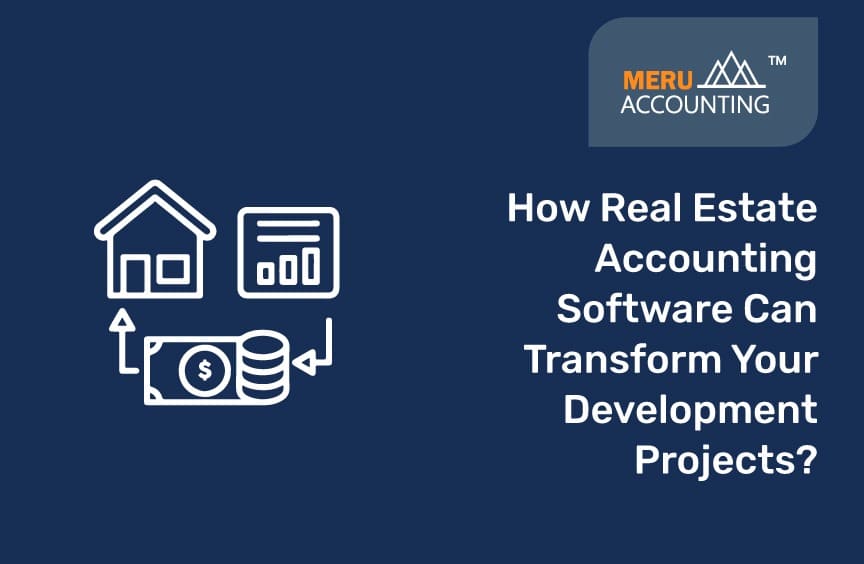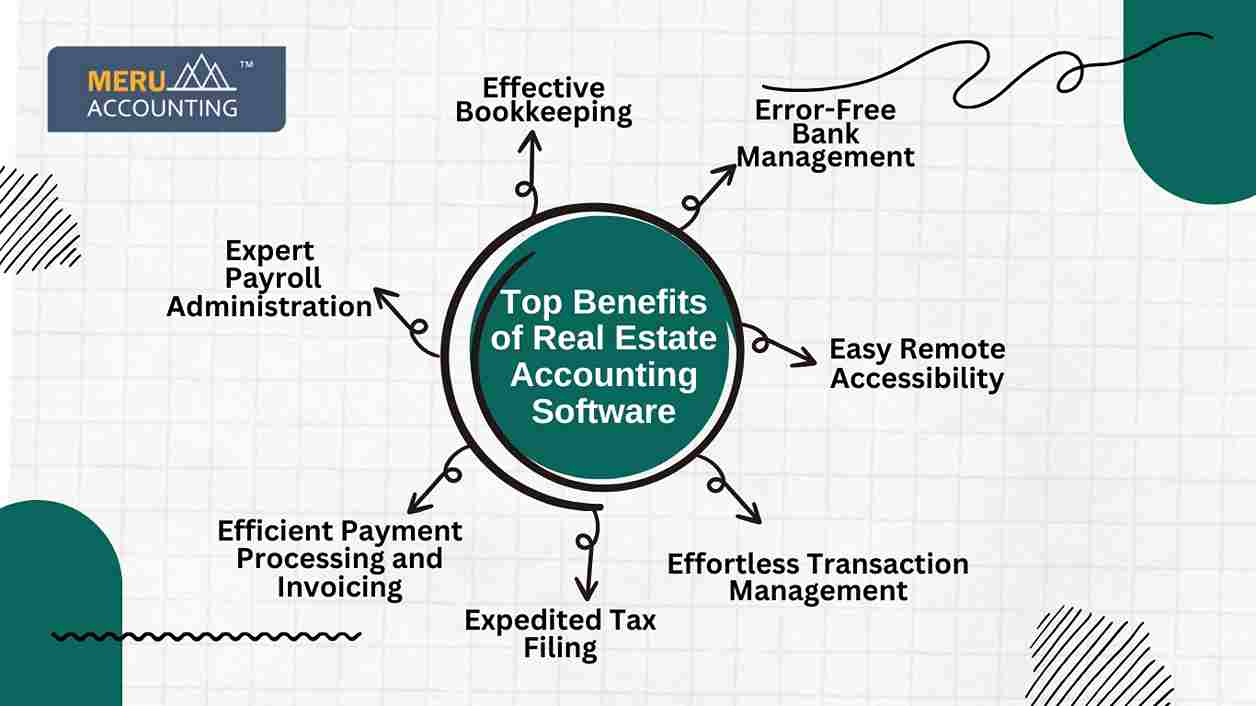Table of Contents

Maximizing ROI: How Real Estate Accounting Software Can Transform Your Development Projects
Managing the monetary factors of real estate improvement projects may be complex and time-consuming. Accounting software for real estate developers has grown to be an essential tool for the ones aiming to maximize their return on investment (ROI). These specialized real estate accounting software application systems streamline economic management, beautify accuracy, and offer precious insights, ultimately transforming the manner improvement projects are managed.
Introduction to Real Estate Accounting Software
Real estate accounting software is a cloud-based solution tailor-made especially for the real estate industry. It addresses the specific financial management needs of developers, property managers, and traders. By automating tasks together with bookkeeping, invoicing, and financial reporting, those systems allow experts to be aware of core commercial enterprise activities.
Top Benefits of Real Estate Accounting Software
- Effective Bookkeeping: These structures streamline the recording and enterprise of financial transactions, making sure accurate and updated facts.
- Efficient Payment Processing and Invoicing: Automated invoicing and price reminders facilitate well-timed payments, enhancing coin float management.
- Effortless Transaction Management: Real estate accounting software simplifies the tracking of a couple of revenue streams and costs, presenting a clean monetary assessment.
- Expedited Tax Filing: These structures assist in tax training by organizing financial statistics and ensuring compliance with tax rules.
- Error-Free Bank Management: Integration with bank accounts allows for seamless reconciliation and decreases the threat of mistakes.
- Expert Payroll Administration: Some answers provide payroll management capabilities, making sure accurate and well-timed employee bills.
- Easy Remote Accessibility: Cloud-primarily based structures offer access to monetary data from everywhere, facilitating faraway work and collaboration.
Transforming Development Projects with Real Estate Accounting Software
- Streamlined Financial Operations: Real estate accounting software program streamlines invoicing, price tracking, and charge processing decreasing manual attempts and saving time. This automation minimizes mistakes and allows developers to recognize strategic assignment dreams, enhancing performance and accuracy in financial control.
- Enhanced Budgeting and Forecasting: Accurate budgeting and forecasting based totally on past information and predicted prices are made feasible by using real estate accounting software. As undertaking conditions change, it enables developers to create affordable economic goals and maintain alignment with them by supporting real-time budget adjustments.
- Improved Cost Management: By tracking expenses over the path of a mission, accounting software for real estate developers guarantees green price control. Real-time monitoring assists builders in identifying issues early on, bearing in mind to activate remedial action to avoid price overruns and protect venture profitability as a whole.
- Real-Time Data Access: Real-time financial statistics enable real estate builders to make quick and informed decisions in fast-changing markets. With real-time reporting, they can monitor project performance against key metrics, adjust strategies, and respond efficiently to market changes, ensuring optimal results.
- Comprehensive Financial Analysis: Modern accounting software programs give advanced economic evaluation equipment to evaluate profitability, analyze cash float, check ROI, and discover dangers. These insights enable real estate developers to make strategic decisions, ensuring venture viability and maximizing financial performance.
- Regulatory Compliance Support: Real estate accounting software simplifies regulatory compliance with automated reporting, accurate record-maintaining, and audit trails. Real estate accounting software simplifies regulatory compliance with automated reporting, accurate record-maintaining, and audit trails. Customizable templates ensure adherence to rules at all levels, decreasing the threat of penalties and legal problems for real estate developers.
- Integration with Other Systems: Integrating real estate accounting software programs with platforms like assets management or CRM systems streamlines operations. Seamless facts trade ensures constant data access, improving conversation, collaboration, and performance among stakeholders at some stage in the undertaking lifecycle.
- Scalability for Growing Businesses: Real estate accounting software scales with business growth, handling increased transactions and property portfolios effortlessly. Its scalability ensures consistent performance, allowing businesses to maintain efficiency and streamline operations as they expand into larger or more diverse ventures.
- Enhanced Investor Relations: By offering comprehensive financial insights and assisting developers in communicating project performance, returns, and risks to investors, real estate accounting software improves transparency. Trust is built through transparent documentation and prompt updates, which improves ties with current investors and draws in possible new ones.
- Risk Management: Real estate accounting software helps identify financial risks by offering comprehensive visibility into project finances. Analyzing trends and forecasting performance based on historical data enables developers to proactively address potential issues, ensuring effective risk management and successful project execution.
- Customization for Specific Needs: Customization options are available in real estate accounting software to satisfy the particular requirements of various projects. To ensure that the software complies with particular property types and operational requirements for more efficient management, developers can modify reporting formats and incorporate specialized modules.
Conclusion
Adopting a real estate accounting software program in 2024 is important for maximizing ROI and streamlining monetary management in improvement projects. Tools like Buildium and QuickBooks Online stand out as less expensive and person-pleasant solutions, providing automation, actual-time insights, and specialized features tailor-made to the desires of accounting software for real estate developers. These abilities simplify mission management even as ensuring compliance, saving time, and improving accuracy. With expert guidance from Accounts Junction, you acquire a guide from setup to ongoing assistance.
Accounts Junction guarantees your tasks leverage the total capability of real estate accounting software for profitability and success.
Frequently Asked Questions (FAQs)
Q1: Is real estate accounting software suitable for small developers?
Yes, many platforms offer scalable solutions tailored to the needs of both small and large developers.
Q2: Can these platforms integrate with other property management tools?
Yes, many real estate accounting software solutions offer integration capabilities with various property management and MLS platforms.
Q3: How does this software assist with tax compliance?
It organizes financial data and generates reports that align with tax regulations, simplifying the filing process.
Q4: Is data secure on these platforms?
Reputable real estate accounting software employs advanced encryption and security measures to protect your financial information.
Q5: Can I access the software remotely?
Yes, cloud-based solutions allow for remote access, enabling you to manage finances from anywhere.

